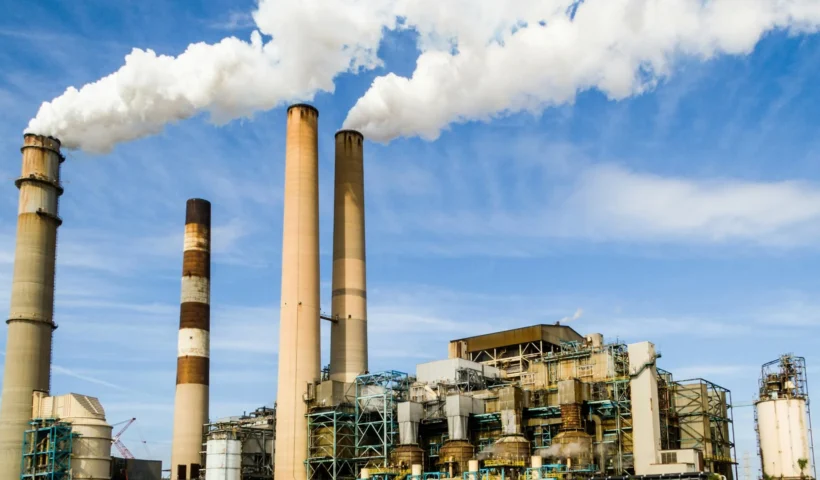Elizabeth Street Garden (ESG) in New York City may be demolished to make room for Haven Green, an affordable housing complex, to ease the city’s housing crisis. The potential destruction of the park has resulted in significant backlash and a decade-long legal debate that has prevented a final decision from being made [2]. It is imperative that the city government helps guarantee the rights of citizens to safe and affordable shelter. However, it is inherently unethical to sacrifice environmental rights, sustainability, and a cherished community space when alternative solutions for affordable housing are available.
View More Elizabeth Street Garden vs. Haven Green: Ethical Dilemmas in Sustainable DevelopmentTag: Sustainability
Plan B turned Plan A: Geoengineering To Resolve Climate Change?
Geoengineering is considered a potential solution to mitigate the increasingly severe impacts of climate change. However, due to scientific and ethical concerns, it is critical to approach geoengineering techniques with caution. As a result, the American Geophysical Union (AGU) has unveiled a new ethical framework to help promote responsible and sustainable scientific research.
View More Plan B turned Plan A: Geoengineering To Resolve Climate Change?UT Austin Engineers Tackle Water Scarcity
Water scarcity is an issue that impacts people all around the world. Thankfully, engineers at the University of Texas have created a device to combat it. They created a bio-based nanofiber hydrogel filter (BNHF) that is cheap, accessible, and has the potential to bring clean water to people all over the world.
View More UT Austin Engineers Tackle Water ScarcityGreat Stakes in the Great Lakes: Anthropocentrism and Biocentrism in Culling Asian Carp
Asian carp are an invasive species that have dramatically damaged US waterways. Environmentalists are scrambling to find solutions to prevent the devastation that may ensue as the carp encroach upon the Great Lakes. However, current solutions to maintain these ecosystems are inherently unethical. Human response to the carp invasion reveals how ecological decision making influenced by human-centric environmentalist ethics is unsuitable when dealing with man-made problems. Instead, humans must consider what ethical obligations they have to protect the environment and repair damage done to the US waterway system.
View More Great Stakes in the Great Lakes: Anthropocentrism and Biocentrism in Culling Asian CarpRunning Low on Gas: Technologies Affected by the Helium Shortage
Advanced technologies such as MRI scans and quantum computing are at risk of losing one of their most important elements: liquid helium. The unique properties of helium lend it to a wide array of scientific uses, but these properties also make helium difficult to capture and reuse. The ongoing shortage of helium has prompted researchers to find ways to recycle or replace helium to conserve this dwindling resource.
View More Running Low on Gas: Technologies Affected by the Helium ShortageThe Ethical Implications of Climate Change and Future Inequality We Can’t Ignore
The impacts of climate change will disproportionately impact disadvantaged groups on regional, national, and international scales. The skewed vulnerabilities that arise from exposure to natural disasters, susceptibility to damage, and community ability to recover fuel the need to examine the ethical implications of producing greenhouse gas emissions in bulk for luxury purposes. As engineers are the creators of industrial processes, the responsibility an engineer holds towards themselves, the community they serve, and the future must be displayed through accountability for the cumulative impacts of each action.
View More The Ethical Implications of Climate Change and Future Inequality We Can’t IgnoreA Bug’s Life: Insects as a Meat Alternative
Meat and dairy production are two of the biggest contributors to greenhouse gas emissions and water consumption worldwide. The environmental impacts of meat products have led to a push to find meat alternatives that still provide the same nutritional value. Part of the solution may lie in the integration of more insects into our diet.
View More A Bug’s Life: Insects as a Meat AlternativeSacrificing the Innocent in the Battle Against Climate Change
President Biden is pushing for the implementation of CO2 pipelines to help decrease emissions, but if they come at the cost of the disadvantaged communities they travel through, are they worth it?
View More Sacrificing the Innocent in the Battle Against Climate ChangeOcean plastics: who is the main contributor?
9/30/2019 “I can’t believe you’re even reaching for that plastic straw. How much do you hate sea turtles?” my friend says as I retract my…
View More Ocean plastics: who is the main contributor?How Airlines Could Set the Pace for Sustainable Travel
9/23/2019 Today, global aviation accounts for 2.4 percent of total carbon dioxide emissions and about 12 percent of greenhouse gases released by the transportation industry…
View More How Airlines Could Set the Pace for Sustainable Travel









